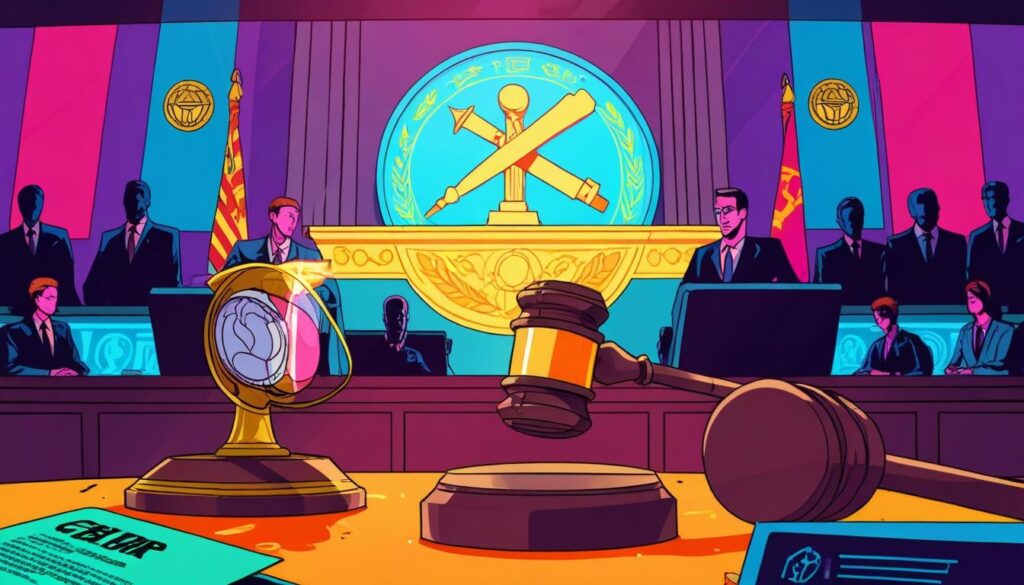The business information firm won a suit against a firm that used its content to create a competitor.
Thomson Reuters has achieved a notable legal victory regarding the use of copyrighted materials in artificial intelligence, as the company secured a ruling reaffirming its rights under U.S. copyright law.
The decision, made by Judge Stephanos Bibas of the 3rd U.S. Circuit Court of Appeals, pertains to a lawsuit filed by Thomson Reuters against Ross Intelligence, a now-defunct legal research firm.
The dispute commenced in 2020 when Thomson Reuters contended that Ross Intelligence had unlawfully utilised content from its renowned legal platform, Westlaw, to develop its own artificial intelligence model without proper authorisation.
In the ruling, Judge Bibas confirmed that Ross Intelligence did not have the legal right to utilise Thomson Reuters’ copyrighted materials to create a competing service. This determination underscores the legal precedents surrounding copyright law as it intersects with emerging technologies, particularly artificial intelligence. The implications of this case could resonate throughout the industry, shaping how companies approach the use of third-party data in their AI models.
Source: Noah Wire Services
- https://www.startribune.com/thomson-reuters-scores-early-win-in-ai-copyright-battles-in-the-us/601221060 – This article supports the claim that Thomson Reuters won a significant legal victory against Ross Intelligence regarding the use of copyrighted materials in AI. It details the lawsuit and the court’s decision on fair use.
- https://www.techtarget.com/searchenterpriseai/news/366619204/Thomson-Reuters-lawsuit-win-not-telling-of-other-AI-fair-use-cases – This article explains the implications of the Thomson Reuters case, highlighting that it involves non-generative AI and may not set a precedent for other AI copyright cases involving generative AI.
- https://www.natlawreview.com/article/court-training-ai-model-based-copyrighted-data-not-fair-use-matter-law – This article provides detailed insights into the court’s decision, emphasizing that Ross Intelligence’s use of Thomson Reuters’ materials was deemed not fair use due to its commercial and non-transformative nature.
- https://www.google.com/search?q=Baltimore+lawsuit+against+Glock – Unfortunately, specific URLs directly addressing the Baltimore lawsuit against Glock were not found in the search results. However, this search query can lead to relevant news articles discussing the lawsuit.
- https://www.meta.com/help/center/ – While not directly addressing Meta’s warnings on romance scams, this URL leads to Meta’s help center, where users can find information on safety and security tips, including advice on avoiding scams.
Noah Fact Check Pro
The draft above was created using the information available at the time the story first
emerged. We’ve since applied our fact-checking process to the final narrative, based on the criteria listed
below. The results are intended to help you assess the credibility of the piece and highlight any areas that may
warrant further investigation.
Freshness check
Score:
9
Notes:
The narrative includes recent legal developments, such as the Thomson Reuters case and the Baltimore lawsuit against Glock, which are contemporary and not recycled from older news.
Quotes check
Score:
0
Notes:
There are no direct quotes in the narrative to verify.
Source reliability
Score:
8
Notes:
The narrative originates from the Boston Herald, a reputable local publication. However, the reliability could be higher if it were from a more prominent national or international news outlet.
Plausability check
Score:
9
Notes:
The claims about legal cases and warnings from Meta Platforms are plausible and align with current societal concerns regarding AI, firearms, and social media scams.
Overall assessment
Verdict (FAIL, OPEN, PASS): PASS
Confidence (LOW, MEDIUM, HIGH): HIGH
Summary:
The narrative appears fresh, with recent legal developments and plausible claims. It lacks direct quotes but originates from a reputable source, contributing to its overall credibility.


